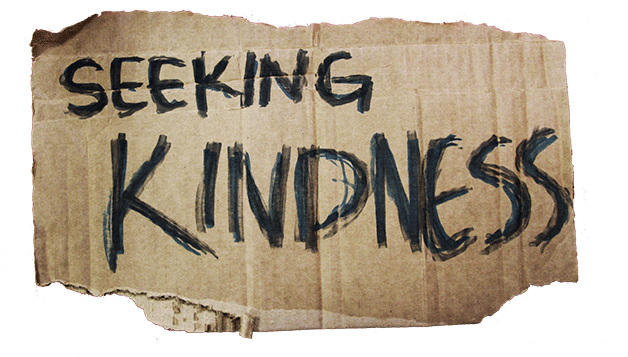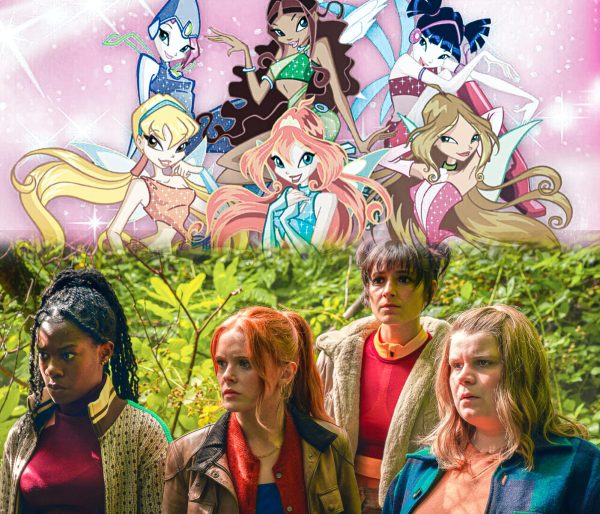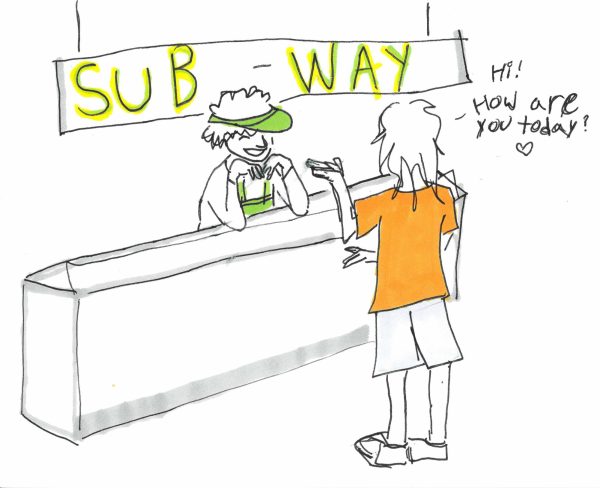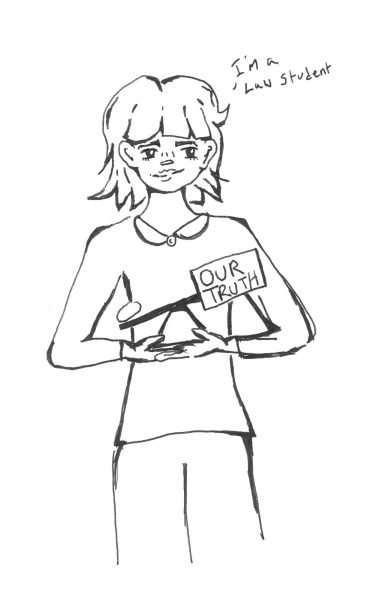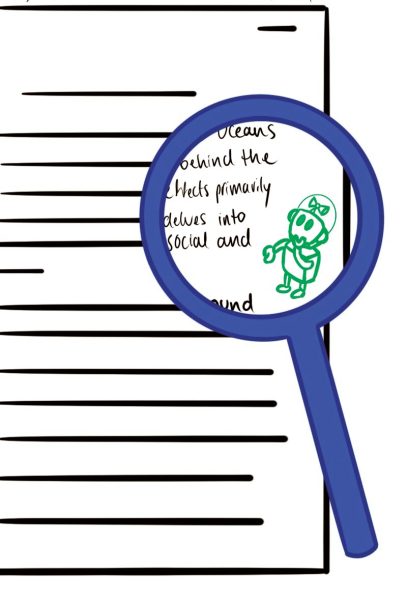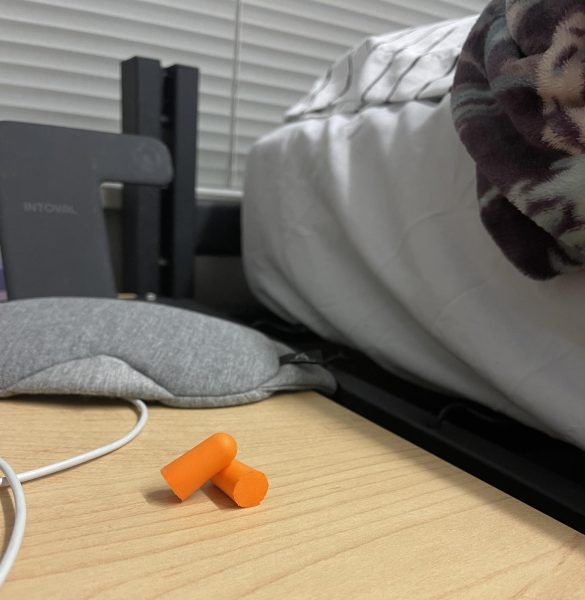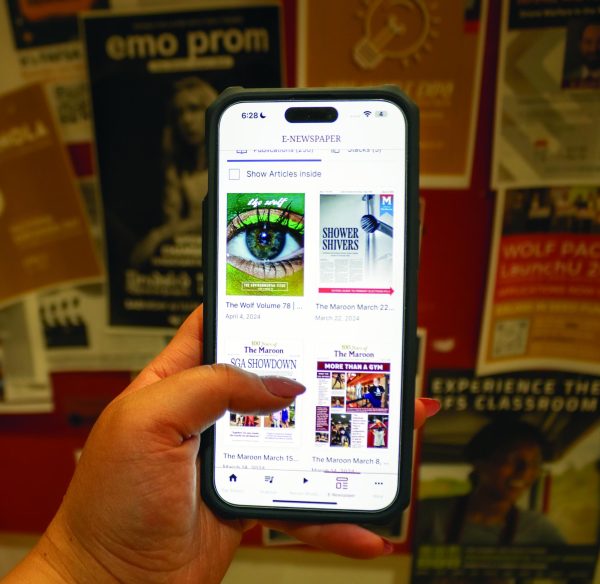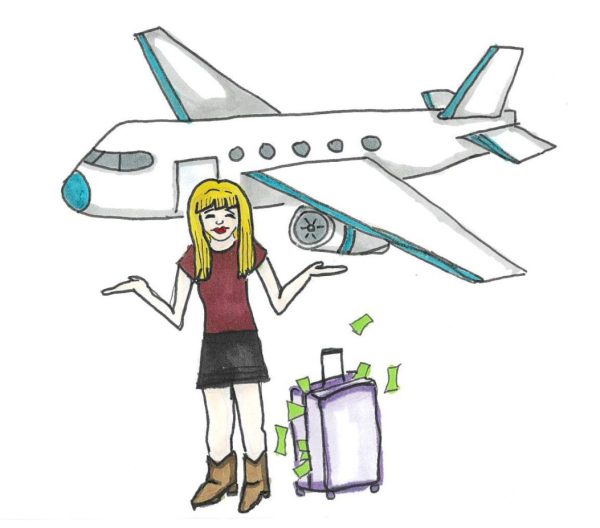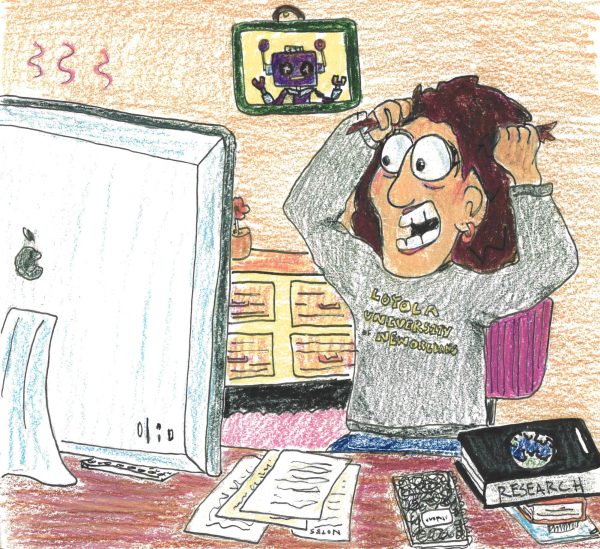Seeking Kindness
Our city’s most vulnerable population must not be ignored and disrespected. We have a moral obligation to treat New Orleans’ homeless community with dignity and respect
February 27, 2015
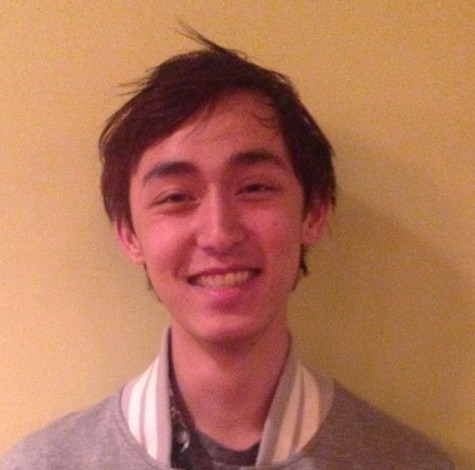
Joe is an English writing sophomore
You’re walking in the French Quarter and someone you don’t know asks you for a dollar, claiming homelessness. You look straight ahead and keep walking.
You might feel bad about it, but you didn’t want to give a dollar. Maybe you didn’t even have one.
Walking around New Orleans, or almost any other major city, you’ll be solicited for money frequently, most often by homeless people.
Whenever it happens to me, I’m not quite sure what to do. Regardless of what they spend it on, I know that they need the money more than I do.
On the other hand, it is my money.
Most times, I get nervous and end up sputtering something about not having any cash. This is usually true. Sometimes, I just keep walking.
In doing so, I am blatantly and deliberately ignoring the human being in front of me.
What’s strange and tragic is what it takes for me and for society as a whole to pay attention to a person.
If you have siblings, you know that often times the sibling who gets the most attention is the one who causes the most trouble. I would know, as I’ve been in turns both a troublemaker and a quiet, honor-roll student. Most often, when I or my siblings would act out, it was because we felt ignored, neglected or marginalized.
What’s strange is that if we view society as a kind of super-extended family, as our Loyola Jesuit values urge us to, a similar pattern of marginalization tends to appear.
Put simply, for whatever reason, society ensures a higher standard of living for convicts than for homeless people. They’re our problem siblings, and as it should, society takes great lengths — in the form of taxpayer dollars — to ensure that they are fed and housed, albeit in prison.
Obviously, convicted criminals deserve to be treated with respect and dignity, and depriving them access to basic human rights and necessities would be an incredible atrocity. However, by comparison, our homeless are far too often ignored and neglected as other issues take the spotlight.
According to the National Health Care for the Homeless Council, 25 to 50 percent of homeless people in the United States have a history of incarceration, with increased rates amongst those with histories of mental illness.
Clearly, the two issues are inextricably linked.
What’s amazing is the way in which our society is compassionate enough to provide so much to criminals who have breached its most sacred codes and taboos.
What’s tragic is the way the homeless can fall by the wayside as we pass them on the street, silently ignoring their humanity.
If we as a society are willing to provide for our convicts, then shouldn’t we also be willing to provide for those who have committed no crime?
Homelessness is a complicated issue, with complicated causes, and simply throwing money at the problem isn’t going to solve anything. That’s not what I’m advocating.
If you continue to walk around New Orleans, you will continue to encounter homeless people. In the past, I’ve failed to treat these people as people. I’ve failed to recognize their dignity.
Next time — and sadly, there will be a next time — I’m going to do better. I might not give a dollar — I might not have one.
I will, however, do my best, as I hope you do, to treat the person standing in front of me with all the decency and dignity they deserve as a fellow human being.
I’m not going to let myself be the kind of person who won’t make eye contact with a stranger in need. Instead, I want to listen to the people I meet, talk to them, and if nothing else, provide them with the free and simple comfort of a friendly smile.
That’s the very least we at Loyola should feel called to do.


